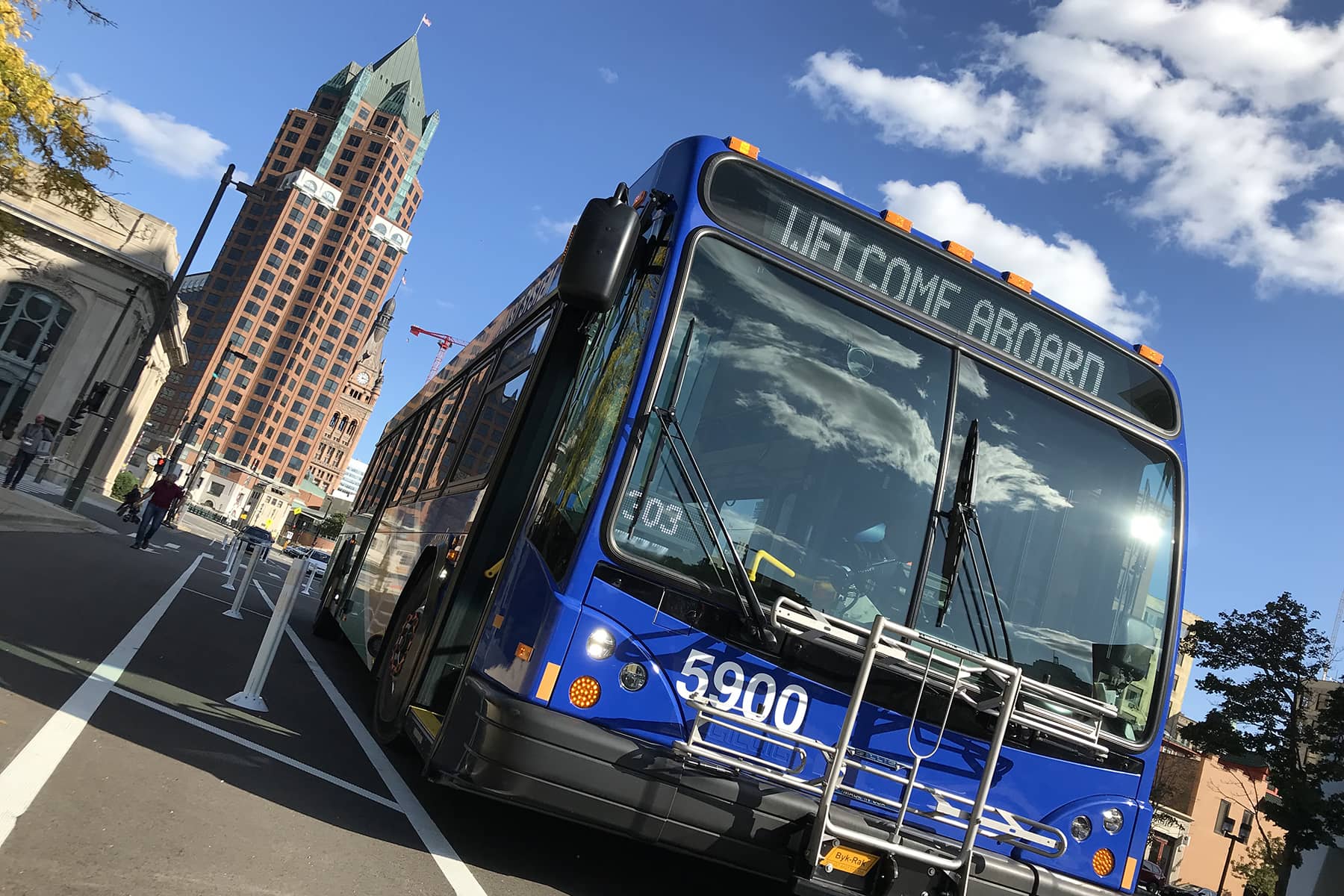
Milwaukee County Transit System (MCTS) gave one million more rides than this time last year for a total of 8.4 million rides. MCTS thanked the community on August 11 for the positive sign that ridership was bouncing back.
Each day, hundreds of bus operators connect thousands of residents to work, appointments and other destinations along 40 bus routes, traveling 55,000 miles each day, nearly 24-hours a day.
“It’s an achievement worth celebrating as we win back ridership we lost during the height of the pandemic. We are grateful to our riders, our operators, and our community for choosing public transit,” said Kristina Hoffman, director of marketing and communications for MCTS. “We want riders to know that they are playing a major role in MCTS’s road to recovery.”
MCTS attributes the increase to a combination of trends including the expansion of high-frequency service begun last year with MCTS NEXT, unpredictable gas prices and more people returning to the office.
In addition, MCTS has seen social and recreational use increase by five percent according to the agency’s annual ridership survey. The survey shows a growing number of people are choosing the bus for general purposes like riding to Milwaukee’s many events and to see sights around town.
Included in the millionth ride statistics is the number of riders who boarded an MCTS bus using a mobility device, a number which has increased by 14 percent over 2021, to a total of 24,000 bus boardings.
Along with bus ridership, the Transit Plus van service has seen growth. Transit Plus provides paratransit service for individuals with a disability that prevents them from using fixed route bus service. Van ridership increased over this same time last year by 27 percent, to 186,000 riders.
MCTS riders have also been able to access more jobs through a new pilot microtransit service, FlexRide Milwaukee, which can be reached by 19 MCTS routes. FlexRide continues to see its ridership expand since launching in March, currently providing about 175 rides per week, and recently announced the service will continue and expand after the pilot ends this fall.
“Recovering the riders lost due to the pandemic shows transit is an essential, everyday service for Milwaukee County residents and points to the need for a well-funded transit system to keep Milwaukee County healthy, growing, and contributing to the success of the region. Currently, we face an upcoming fiscal cliff that will force us to make difficult decisions unless long-term funding solutions can be identified at local, state and federal levels. The economic health of our region and the jobs located here depend on a top-notch transportation system,” added Hoffman.
© Photo
Milwaukee County Transit System (MCTS)














